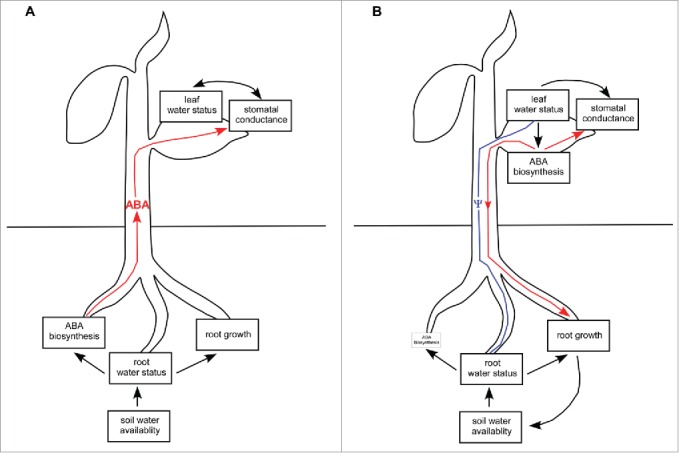Figure 1.

Diagrammatic representations of (A) the classical 'root-sourced' model for ABA biosynthesis and transport (red) in a plant experiencing soil water limitation (adapted from Davies and Zhang12) and (B) a schematic synthesis of the findings from our two recent studies.8,9 We propose a new, ‘leaf-sourced’ model whereby soil water limitation reduces root water status and thus plant water potential (Ψ, blue). A decline in water potential in the roots provides an instantaneous signal through the internal water column in the xylem to the leaves, directly influencing leaf water status. A decline in leaf water status triggers foliar ABA biosynthesis which in turn closes stomata.6 Foliage-derived ABA is basipetally transported from the leaves to the roots where it promotes root growth under both well-watered and water-stressed conditions. The promotion of root growth by foliage-derived ABA feeds back on the soil water available to the plant. Root ABA biosynthesis is minimal, scarcely influencing shoot physiology.
